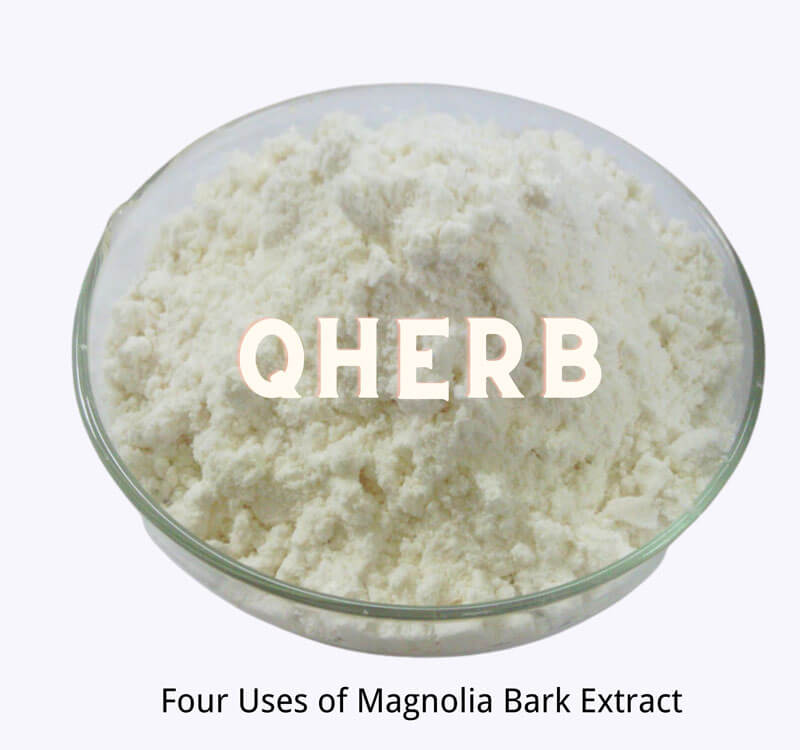Four Uses of Magnolia Bark Extract
The Magnolia is a deciduous tree native to the hills and valleys of China and grows at altitudes of 300-1500 m. Its thick brown bark is highly aromatic and is used in traditional Chinese medicine to cure a wide range of ailments. The stems and roots of the tree are stripped of this medicinal and scented bark to make medicines. The bark of Magnolia contains two polyphenolic compounds that are the main reasons behind its medicinal values. Commonly known as Magnolia bark, it is also supposedly used in other Asian countries such as Japan and Korea for its therapeutic properties. The flower buds can also be used for health purposes. Dried flowers of the Magnolia can be used to concoct a special tea that provides relaxation and helps to induce sleep.
Many people suffering from anxiety and depression have turned to Magnolia bark extract to help them cope with their mental troubles and physical fatigue. So let us take a look at four major uses of this medicinal tree.
Induces Sleep
The Magnolia bark extract is primarily used to promote sleep as it is known to be a potent GABA booster. GABA or Gamma-amino butyric acid is a natural amino acid that acts as a neurotransmitter in the human brain. GABA is an inhibitory neurotransmitter that helps to block or inhibit certain neurons thus decreasing nervous activities. This, in turn, helps to promote sleep. Patients suffering from insomnia also suffer from decreased GABA activity. Magnolia bark extract can, therefore, help insomnia patients as well as patients suffering from other sleep-related disorders.
According to research, the chemicals in the extract of Magnolia bark can make one fall asleep quicker and also influences the amount of time spent in REM or NREM sleep. It is also effective as an adrenaline inhibitor thanks to bioactive compounds. Adrenaline is a hormone that controls our reaction to situations. The hormone increases the alertness level of a person and too much adrenaline can also result in stress. Thus, the Magnolia bark extract effectively acts as a sleep promoter because of its ability to contain adrenaline.
Manage Anxiety and Stress
Magnolia bark has been used for centuries by practitioners of traditional Chinese medicine as effective stress and anxiety reliever. The GABA boosting qualities of the Magnolia that we have already discussed plays its fair share of role in relieving anxiety but the lion’s share of the work is taken care of by the Magnolia bark’s uncanny ability to activate cannabinoid receptors in our brain.
Once the Magnolia bark extract activates the cannabinoid receptors, the endocannabinoid system of our body does the rest. Honokiol, one of the many active compounds present in the Magnolia bark, helps to calm the nervous system and elevate the mood much like over the counter drugs like diazepam. The extract also affects the production of both serotonin and dopamine. Serotonin is a neurotransmitter and dopamine acts both as a neurotransmitter and as a hormone. The right balance of serotonin and dopamine decides the mental or emotional well being of a person. Studies indicate that Magnolia bark extract, when taken with ginger, can help tackle depression by affecting the activity of both serotonin and dopamine.
Anti-inflammatory Agent
The extract from the Magnolia bark has anti-inflammatory properties and hence finds widespread use to soothe pain and swelling. Traditional Chinese medicine has been using Magnolia bark as an anti-inflammatory medicine for ages. The medicine can alleviate joint pain, muscle pain, as well as headaches. Ancient Chinese doctors used to give Magnolia bark extracts to women to help them deal with menstrual cramps. Research on mice in a controlled environment has shown a reduction in pain after the use of Magnolia extract.
Possible Cancer Protector
Cancer is rampant nowadays and we are yet to stumble upon a cure. Until then we must do with radiotherapy, chemotherapy, or natural therapy. Extract from the bark of Magnolia is one such natural agent that can prevent cancer. Bioactive compounds in Magnolia bark, especially costunolide, are attracting the attention of researchers because of their possible cancer-fighting abilities. This ability is especially notable in ovarian and breast cancer cases and in certain cases of leukemia.
Research at the Johns Hopkins University suggests that the active compounds of Magnolia bark extract can possibly reduce the growth of cancer cells in certain patients. More detailed studies are necessary to come to a conclusion but first impressions indicate that the Magnolia bark may one day lead to a cure.



 Healthier Future
Healthier Future